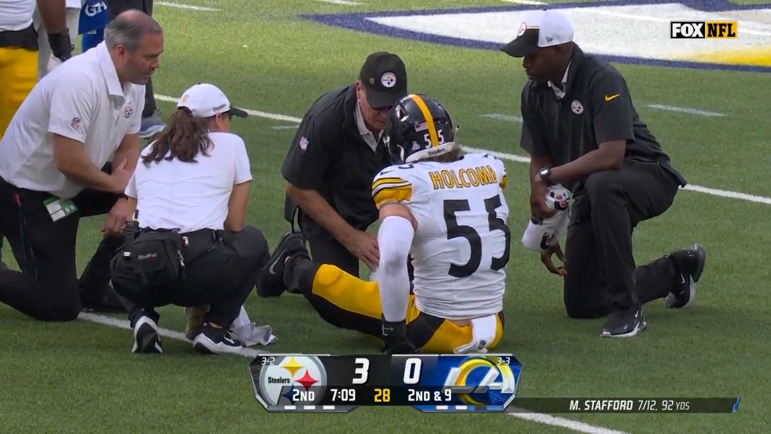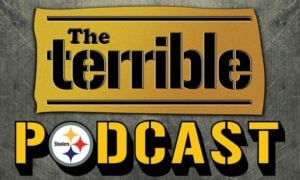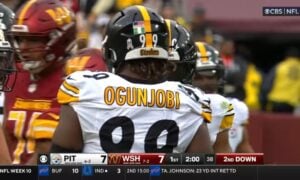Player: ILB Cole Holcomb
Stock Value: Down
Reasoning: The Steelers’ signing of Patrick Queen is not a good indication for Cole Holcomb on multiple levels. For one thing, it immediately reduces him to no better than the second linebacker. The signing could also indicate that the Steelers are skeptical Holcomb can return to the starting lineup from his injury.
I don’t know that the Steelers have laurels at this point, but if they do, they’re not resting on them. They have been quite active the past two offseasons under new general manager Omar Khan, and proactive at that. Facing health concerns at the inside linebacker position, they went out and signed the top player on the market.
After four years as a Baltimore Raven, they made Patrick Queen a Steeler. He is immediately their top player over the middle, reducing Cole Holcomb’s absolute ceiling. Holcomb was as close as they came to an every-down linebacker this year, but that’s now Queen’s job.
Holcomb suffered a severe knee injury in the middle of the season, spending the rest of the year sidelined. Head coach Mike Tomlin and the Steelers have been cautious about speaking too firmly about his future.
While Holcomb wasn’t a break-the-bank signing, he commanded a respectable salary on the open market last year. He signed a three-year, $18 million contract to take over their top linebacker spot, and he looked capable of it.
But the Steelers are not acting as though they expect Holcomb to play this year, at least with any confidence. I don’t believe we even know the full details of the nature of his injury, but it’s likely more complicated.
Notably, Pittsburgh is continuing to explore the linebacker market, both among veterans and rookies. The fact that they are still looking to add to the room may be another bad sign for Holcomb. The Steelers still have Elandon Roberts and Mark Robinson on the depth chart, so it’s not like they have nobody.
As the season progresses, Steelers players’ stocks rise and fall. The nature of the evaluation differs with the time of year, with in-season considerations being more often short-term. Considerations in the offseason often have broader implications, particularly when players lose their jobs, or the team signs someone. This time of year is full of transactions, whether minor or major.
A bad game, a new contract, an injury, a promotion—any number of things affect a player’s value. Think of it as a stock on the market, based on speculation. You’ll feel better about a player after a good game, or worse after a bad one. Some stock updates are minor, while others are likely to be quite drastic, so bear in mind the degree. I’ll do my best to explain the nature of that in the reasoning section of each column.








